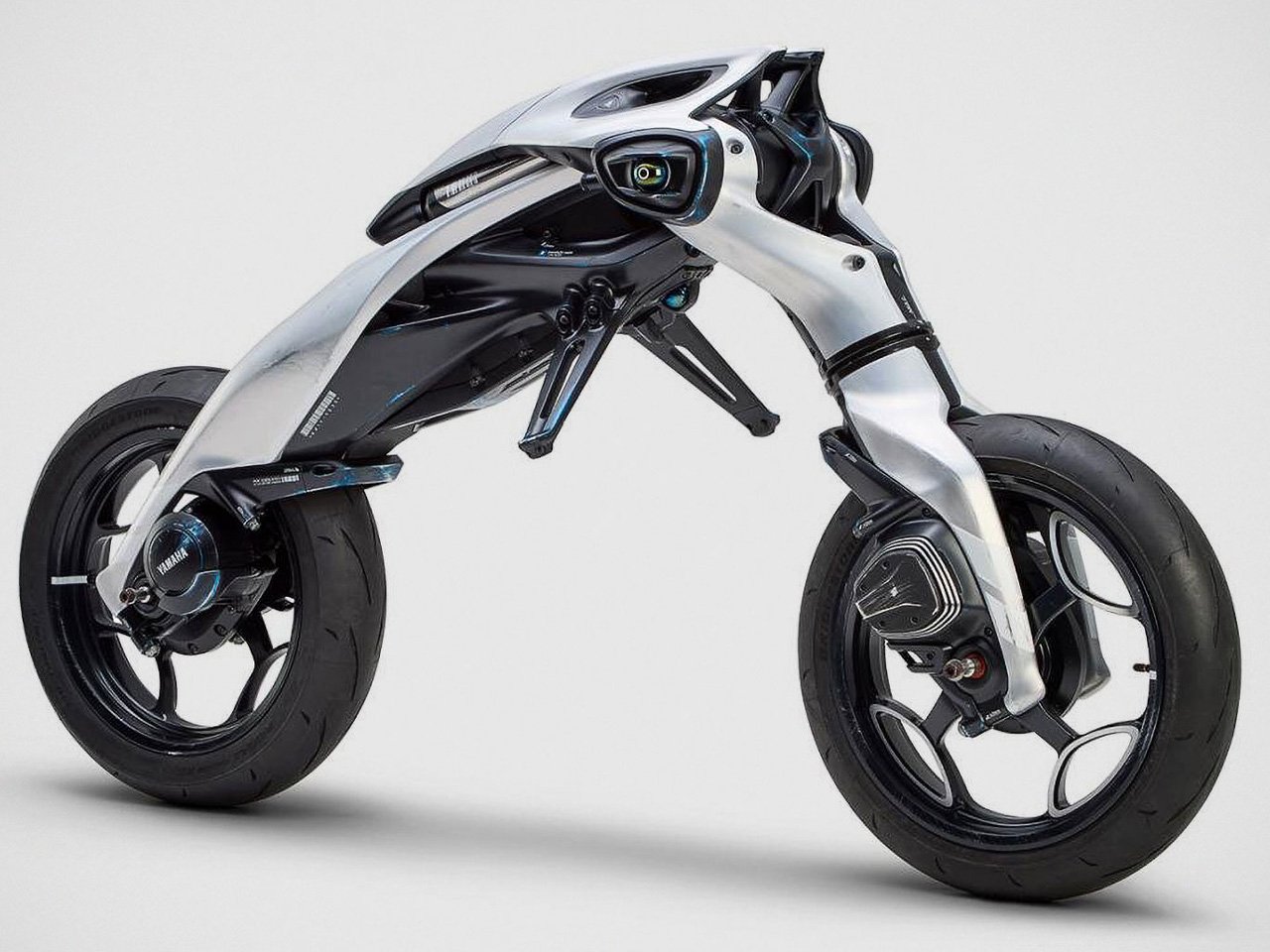Yamaha has long been known for pushing the boundaries of what mobility can feel like, merging precision engineering with a sense of soulful motion. From the expressive MOTOROiD of 2017, which first hinted at a bike capable of self-balance and emotional recognition, to the MOTOROiD2 in 2023 that explored mutual responsiveness between man and machine, the brand’s design evolution has consistently blurred the line between artificial intelligence and artistry. Now, at the 2025 Japan Mobility Show, Yamaha presents the next iteration of that vision, the MOTOROiD:Λ (Lambda), a concept electric motorcycle that doesn’t just move, but learns, reacts, and evolves.
MOTOROiD:Λ represents Yamaha’s ongoing effort to create a machine that shares an intuitive bond with its rider. Unlike conventional motorcycles, it’s not designed simply for control; it’s designed for interaction. The bike incorporates a sophisticated learning system based on reinforcement learning and Sim2Real technology, allowing it to train in simulated environments before applying its acquired intelligence to real-world conditions. This approach enables the motorcycle to make real-time decisions: balancing, steering, or recovering from a fall without constant human input, showcasing a rare blend of autonomy and responsiveness.
Designer: Yamaha
Its form mirrors this dynamic intelligence. The design features an exposed exoskeleton that connects the front and rear sections, emphasizing both flexibility and raw functionality. The rear chassis can rotate up to 180 degrees relative to the front, a motion that not only demonstrates advanced control but also reflects the concept’s ability to “express” itself. Even more impressively, if MOTOROiD:Λ tips over, it can autonomously lift itself upright, a striking display of Yamaha’s mastery in self-stabilizing technology and AI-driven mechanics.
Built with a lightweight yet resilient frame, MOTOROiD:Λ can withstand the rigors of its constant self-learning cycles. Its AI doesn’t simply execute commands; it refines its own motion patterns through experience. The result is a machine that moves organically, adapting to conditions and rider inputs with near-human sensitivity. It’s a continuation of Yamaha’s belief that the future of mobility lies in emotional intelligence as much as technical performance.
Beneath its futuristic silhouette lies a philosophy that Yamaha has been nurturing for years, the pursuit of a new relationship between humans and machines. MOTOROiD:Λ embodies that ideal by existing as both a vehicle and a companion, one that evolves through understanding and interaction. While it remains a concept, it reflects a future where machines are not merely ridden, but engaged with, where technology becomes empathetic.
Alongside MOTOROiD:Λ, Yamaha’s booth at the 2025 Japan Mobility Show featured a range of forward-looking concepts exploring different forms of sustainable motion. The TRICERA proto introduced a three-wheel electric autocycle with a full-steering 3WS system, while the PROTO BEV showcased a supersport electric bike emphasizing high-capacity battery dynamics. Yamaha also unveiled the H2 Buddy Porter, a hydrogen-powered scooter developed with Toyota, alongside hybrid concepts like PROTO HEV and PROTO PHEV, and the modular Y-00B Base/Bricolage e-bikes that invite creative customization.
Together, these innovations form a cohesive picture of Yamaha’s mobility vision, where electrification, hydrogen fuel cells, AI, and design coexist to expand human expression. MOTOROiD:Λ stands at the center of that journey, not merely as a prototype of the future, but as a bold redefinition of what it means to connect with motion itself.
The post Yamaha’s AI Motorcycle Picks Itself Up Off the Ground After It Falls first appeared on Yanko Design.

